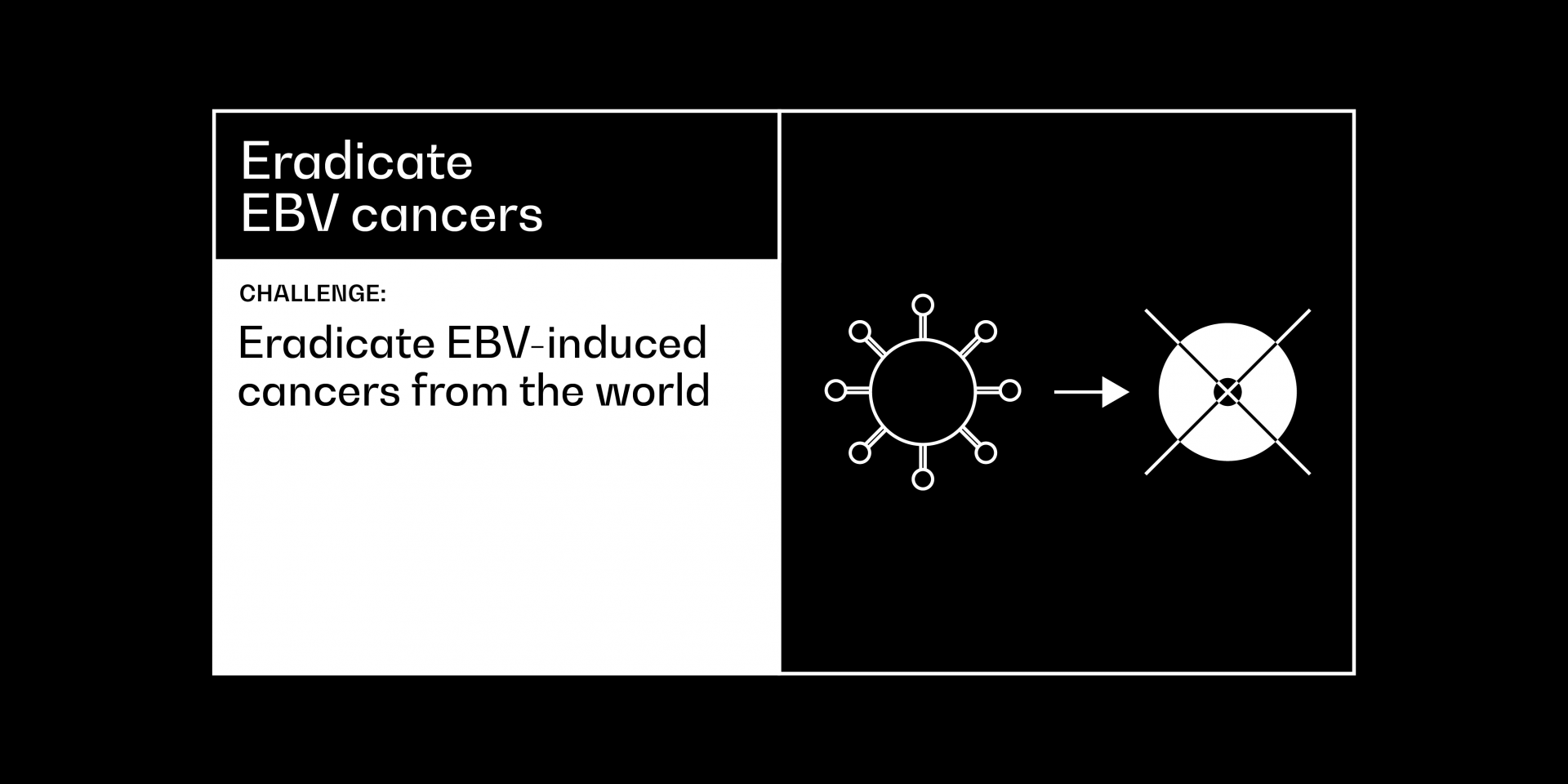
Eradicate EBV cancers
Challenge: To eradicate EBV-induced cancers from the world
This was a challenge in an earlier round, we are not currently accepting applications for this challenge.
Context
Up to 20% of worldwide cancer cases are associated with infectious diseases, and we could prevent these cancers by eliminating the infections that cause them.
The success of the human papilloma virus vaccine, which has shown the potential to protect young girls from developing cervical cancer, shows how powerful this approach can be.
The Epstein-Barr Virus (EBV) is present in around 95% of adults and is generally asymptomatic during childhood, but it can cause glandular fever in adults, with often debilitating effects.
The darker side of EBV is that it causes significant deaths from cancer in China and South East Asia, where it is associated with the development of nasopharyngeal carcinoma (NPC).
Worldwide, EBV infection is also linked with up to 15% of stomach cancers, and with Burkitt’s and Hodgkin’s lymphomas.
Certain communities and geographical locations are hotspots for the development of these cancers and EBV has been cited as important target for cancer prevention by the US National Institutes of Health.
Barriers and opportunities
If we are to eradicate EBV-induced cancers, we need to develop preventive or therapeutic vaccines, or drug treatments that target infected cells.
Although some promising vaccines are currently in development we could be doing more, particularly in light of recent rapid advances in research into how tumours and other cells are able to hide from the immune system.
We now have a chance to make real progress in understanding the immune recognition of EBV and of EBV-infected and transformed cells.
Vision and Impact
Each year 200,000 cancers worldwide are caused by Epstein-Barr Virus (EBV). We want to find a way to reduce that figure to zero.
Plain language summary: Why eradicate EBV cancers?
Around 19 in 20 adults carry the Epstein-Barr Virus (EBV), making it one of the most common human viral infections.
In most people, EBV is relatively harmless, although it’s the cause of glandular fever, “kissing disease”. But in some parts of the world it’s a big problem – every year, EBV infection accounts for 200,000 new cases of cancer worldwide, and more than 140,000 deaths.
To eradicate EBV-induced cancers from the world is a Cancer Grand Challenge that would make a significant difference to global health, and is a fully achievable ambition.